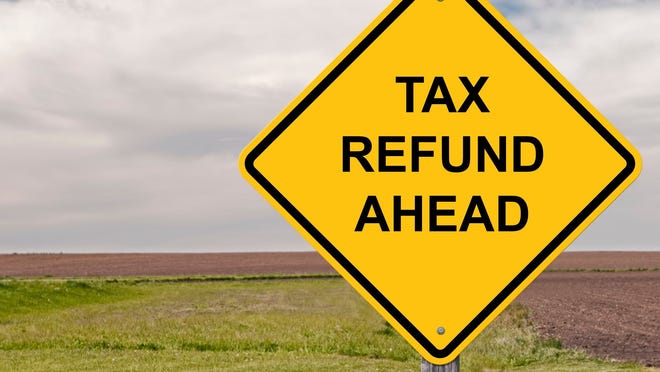
With tax season officially open as of Jan. 27, taxpayers may feel a familiar sense of anxiety. In fact, about 1 in 3 taxpayers told Credit Karma Tax in a recent survey they typically get anxious about prepping their taxes.
Tax anxieties are higher among younger Americans, with the survey finding that more than 40% of the millennial and Generation Z groups experience tax anxiety, compared with fewer than 30% of Generation X. The reason could be tied to experience, since Gen X – taxpayers between about 40 to 55 – have many more years of filing returns under their belt.
Fueling those anxieties are several common misconceptions that can hurt taxpayers, either by needlessly adding to their worries or even costing them money.
At the heart of the issue is a complicated tax system that the Bipartisan Policy Center – a think tank that integrates ideas from both Democrats and Republicans – says literally costs Americans $200 billion each year in time and money spent to prepare their returns. That estimate excludes tax payments, it says.
“A lot of the confusion around tax filing comes from a general lack of understanding of how taxes work,” says Dana Marineau, financial advocate at Credit Karma. “This was apparent in our last survey surrounding refunds, where we found that more than half of taxpayers don’t realize where their tax refunds come from.”
That can hurt taxpayers if they don’t understand their refunds reflect money they already paid to Uncle Sam. In other words, refunds are an interest-free loan to the U.S. government courtesy of taxpayers. While tax refunds can offer a chance to catch up on bills or buy something special, some consumers might be better off adjusting their withholding to avoid overpayment of taxes, some experts say.
Taxes don’t have to be so anxiety-laden, tax experts note. Clearing up several misconceptions can help.
Myth 1: A mistake on my taxes will affect my credit score
About one-third of taxpayers mistakenly believe that an error on your tax filing will hurt your credit score, Credit Karma Tax found in its recent survey. But that’s not the case, tax experts say.
“Everyone understands a credit score is important, but they may not understand what goes into it,” says Matt Sotir, a financial professional at Equitable Advisors. “It’s not irrational they would think it would impact it, but tax return liens are excluded from credit scores now.”
That change occurred in 2018, when the three national credit bureaus – Experian, TransUnion and Equifax – removed all tax liens, or debts owed to the IRS, from credit reports because of research indicating problems with accuracy.
In other words, consumers shouldn’t needlessly fret that an error on their tax returns will impact their credit score. Credit scores “are the credit bureaus’ best guess of whether you will pay your bills on time, and that has nothing to do with paying your state and federal taxes,” Marineau adds.
Myth 2: If I file a tax extension, I have until Oct. 15 to pay the IRS
Last year, more than 1 in 10 taxpayers requested a six-month extension for filing their taxes. A common misconception is that the extension also gives you more time to pay the IRS, but that’s not the case.
Typically, taxpayers request an extension if they need more time to gather documents or have complicated taxes that require more prep time. But the IRS still expects you to pay any owed taxes by April 15, which sometimes isn’t understood by taxpayers, says Luke Sotir, a financial professional at Equitable Advisors along with Matt Sotir, his brother.
“It doesn’t change your obligation to pay your taxes to the IRS,” Luke Sotir notes.
And take note: Penalties and interest can accrue if you fail to pay the IRS by April 15, regardless of whether you filed an extension.
Myth 3: I don’t need to adjust my tax withholding again
Under the first full year of the new tax law, taxpayers were encouraged by the IRS to adjust their withholding on the W-4s with employers. But even if you checked last year, you still may need to make an adjustment in 2020, especially if you’ve added side income through gig work or a second job.
In fact, the IRS redesigned the W-4 for 2020, and says that taxpayers with more than one job or households where both spouses have jobs may need to increase their withholding. Earning extra income through a second job, for example, can boost your income, putting you in a higher tax bracket. That places you at risk for underpayment of taxes unless you adjust your withholding.
Checking your withholding early in 2020 can help you prepare for the 2020 tax year and avoid unpleasant surprises next April.
























